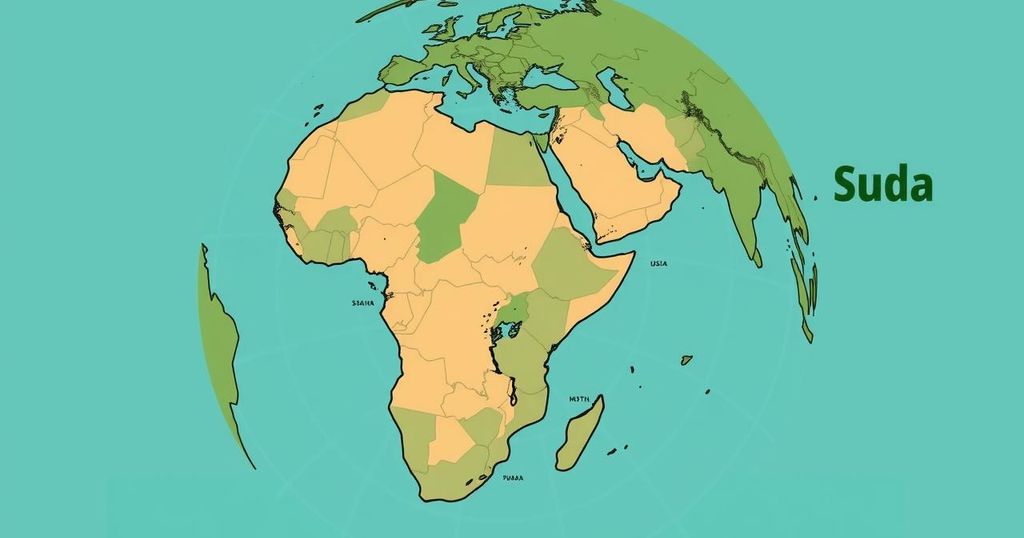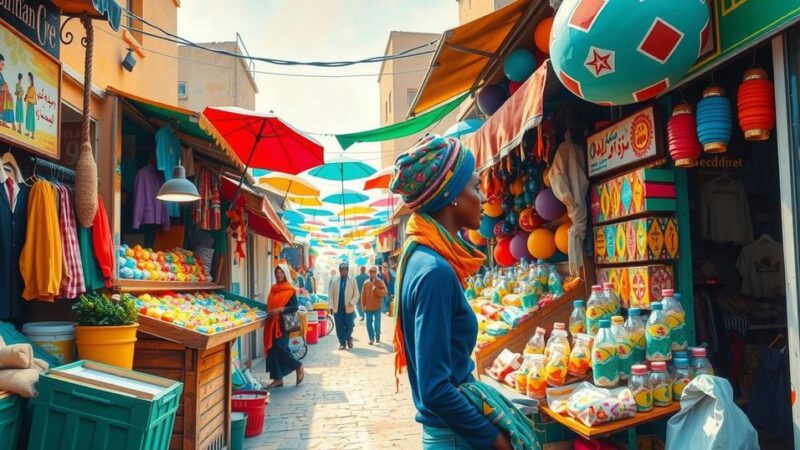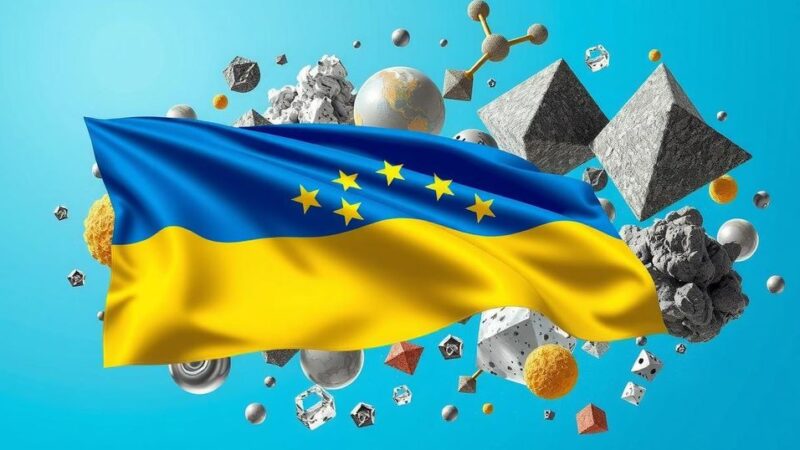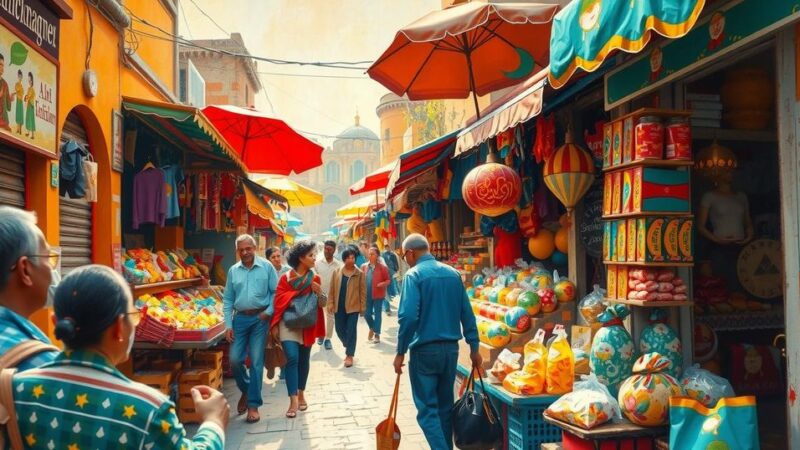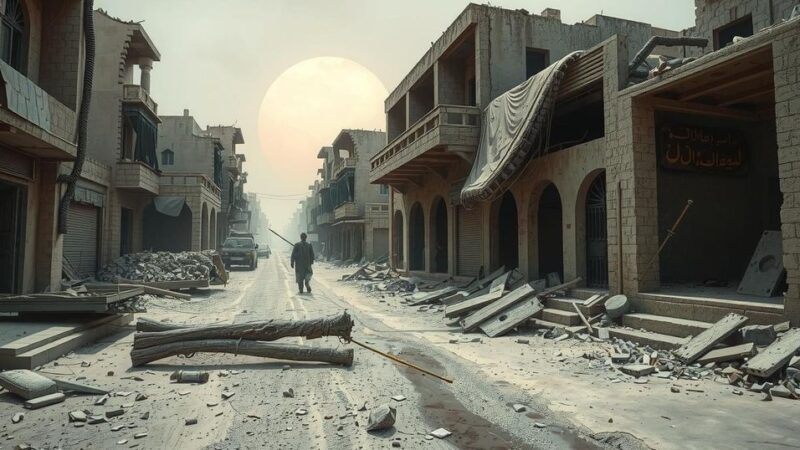Sudan has filed a case against the UAE at the ICJ for complicity in genocide connected to the Rapid Support Forces (RSF). The accusations include Emirati support for RSF atrocities against the Masalit group, leading to significant civilian casualties. The situation raises crucial questions about international accountability, reflecting the broader geopolitical implications for the Global South, especially in light of recent parallel legal actions by South Africa against Israel.
The International Court of Justice (ICJ) has recently announced that Sudan has initiated proceedings against the United Arab Emirates (UAE) for complicity in genocide. This action stems from accusations that the UAE’s ongoing support for the Rapid Support Forces (RSF) has contributed to war crimes amid the ongoing power struggle against the Sudanese Armed Forces (SAF) since April 2023.
Moreover, the case highlights numerous atrocities committed by the RSF against the Masalit ethnic group. Reports indicate that during May and June 2023, approximately 15,000 Masalit civilians in West Darfur were killed, while over 500,000 were displaced into Chad, reminiscent of the atrocities of the early 2000s during the Darfur conflict, previously linked to Janjaweed militias.
Sudan accuses the UAE of breaching the Genocide Convention by enabling the RSF’s violent acts. The evidence includes reports from the Raoul Wallenberg Centre for Human Rights and Human Rights Watch, showcasing systematic killings, sexual violence, and the destruction of whole villages in West Darfur, confirmed by satellite imagery analysis from Yale University’s Humanitarian Research Lab.
Further reinforcing these claims, a United Nations report details the discovery of mass graves resulting from RSF assaults, with survivor testimonies indicating targeted ethnic violence against the Masalit. The U.S. State Department’s classification of the RSF’s actions as genocide aligns with these findings, despite being perceived as belated under the current administration.
The UAE’s involvement is substantiated by credible reports highlighting its supply of weapons to the RSF. A U.N. Security Council report from January 2024 corroborated evidence of such actions via the UAE’s Amdjarass base in Chad. Flight tracking data indicates at least 86 flights from the UAE to Amdjarass since the onset of the conflict, many linked to arms trafficking.
Investigative reports from the New York Times further revealed a secret Emirati drone base at Amdjarass airport supporting the RSF. This uncovered the deployment of advanced drones that significantly increased civilian casualty rates during urban clashes, illustrating the dire implications of UAE’s military alliance with the RSF.
The UAE’s substantial economic power, reflected in its $569 billion GDP, poses a challenge for Sudan, which has a mere $30 billion economy. The UAE’s close collaborations with Western governments exacerbate the situation, as U.S. lawmakers have criticized the UAE’s failure to honor commitments to halt RSF support, which continues to result in extensive civilian casualties.
The situation further complicates the landscape of international justice amid rising challenges faced by the ICJ and the International Criminal Court, particularly with recent sanctions affecting the latter. In December 2023, South Africa took legal action against Israel for genocide in Gaza, garnering support from several global south nations, signifying a moment of solidarity that necessitates a similar backing for Sudan.
While South Africa’s advocacy is rooted in its history of anti-apartheid activism, Sudan’s historical context presents distinct challenges, notably the dire humanitarian crisis exacerbated by internal and external exploitation. If nations supporting South Africa fail to extend similar support to Sudan, it undermines the core principles of global south solidarity and risks perpetuating inequitable applications of international law.
It is crucial to differentiate support for Sudan’s case from an endorsement of the Sudanese government. Although the SAF has a controversial history involving civilian casualties, the emphasis must remain on the UAE’s accountability for its alleged complicity in these heinous violations.
The UAE’s extensive influence in regional conflicts poses broader implications for international relations, particularly if its actions remain unchecked. An effective ruling from the ICJ against the UAE could restore the court’s credibility, necessitating unity among nations supporting Sudan’s pursuit of justice.
However, the UAE may attempt to evade responsibility by referencing its reservations to Article IX of the Genocide Convention. Legal scholars challenge the legitimacy of such reservations, emphasizing their inconsistency with the treaty’s intentions. Inaction from global south nations regarding Sudan’s plight risks enabling unchecked exploitation by powerful actors, solidifying an international paradigm where wealth supersedes accountability and leaves vulnerable populations in peril.
In summary, Sudan’s ICJ case against the UAE for complicity in genocide highlights the urgent need for moral and diplomatic support from the Global South. The systemic violence perpetrated against the Masalit and the broader humanitarian crisis necessitate a unified response to uphold principles of international justice. Failure to support Sudan risks compromising the integrity of international law and perpetuating a paradigm of inequality that favors powerful nations over vulnerable states.
Original Source: foreignpolicy.com
